Rewind to Issue #104 of Singletrack Magazine for our review of the Ritchey Timberwolf from the Hardcore Hardtails grouptest.
The Ritchey Timberwolf is another name from the dim and distant past. Tom Ritchey’s original Timberwolf back in the 1980s was supposed to be a ‘do it all’ type of bike, so this is the modern-day interpretation. There aren’t many brands of mountain bike that have as much appeal as Ritchey – while I was riding it there were more comments made about how lovely and gorgeous it is than with any other bike I’ve ever ridden. I do agree though, it is a very handsome thing indeed.
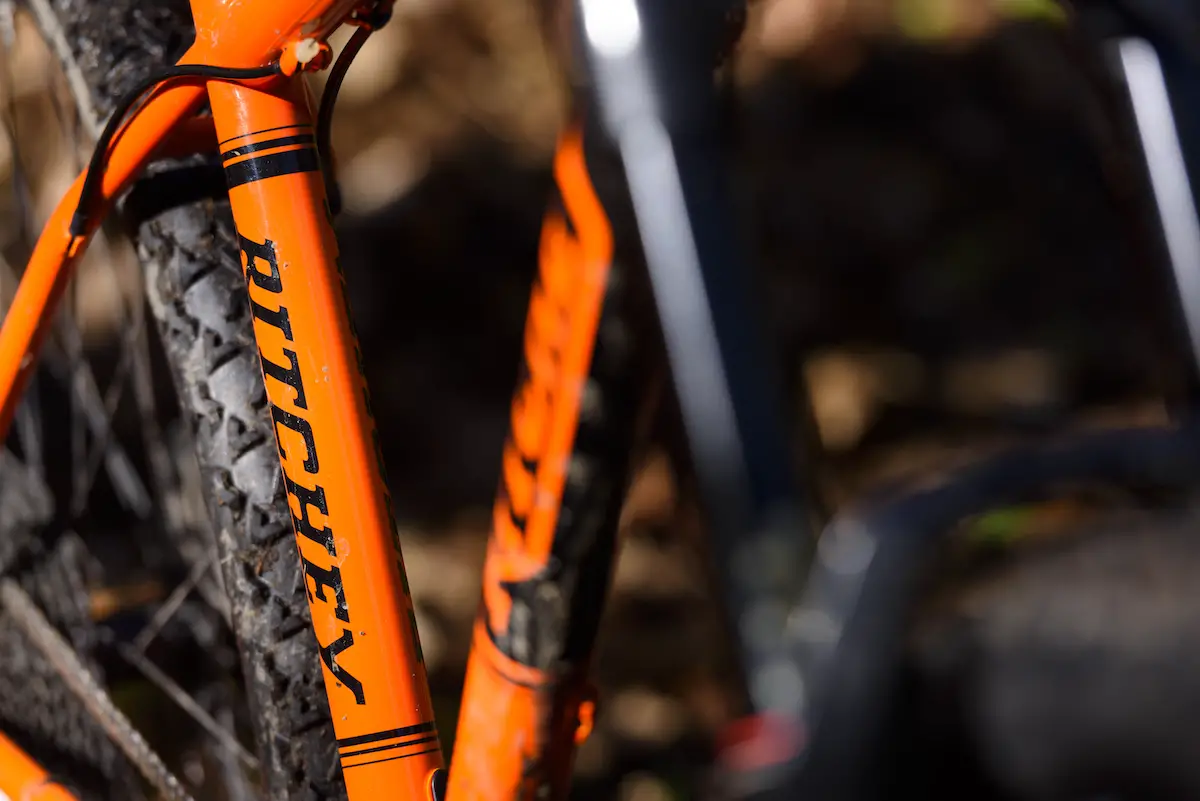
The headtube for a start is an elegant thing of beauty, shame though that the iconic Ritchey badge is a plain black sticker and not something a bit grander. Granted it’s a lacquered-over sticker, but it’s a sticker. The downtube has a fork dial-friendly bend and attaches to a standard threaded BB shell.
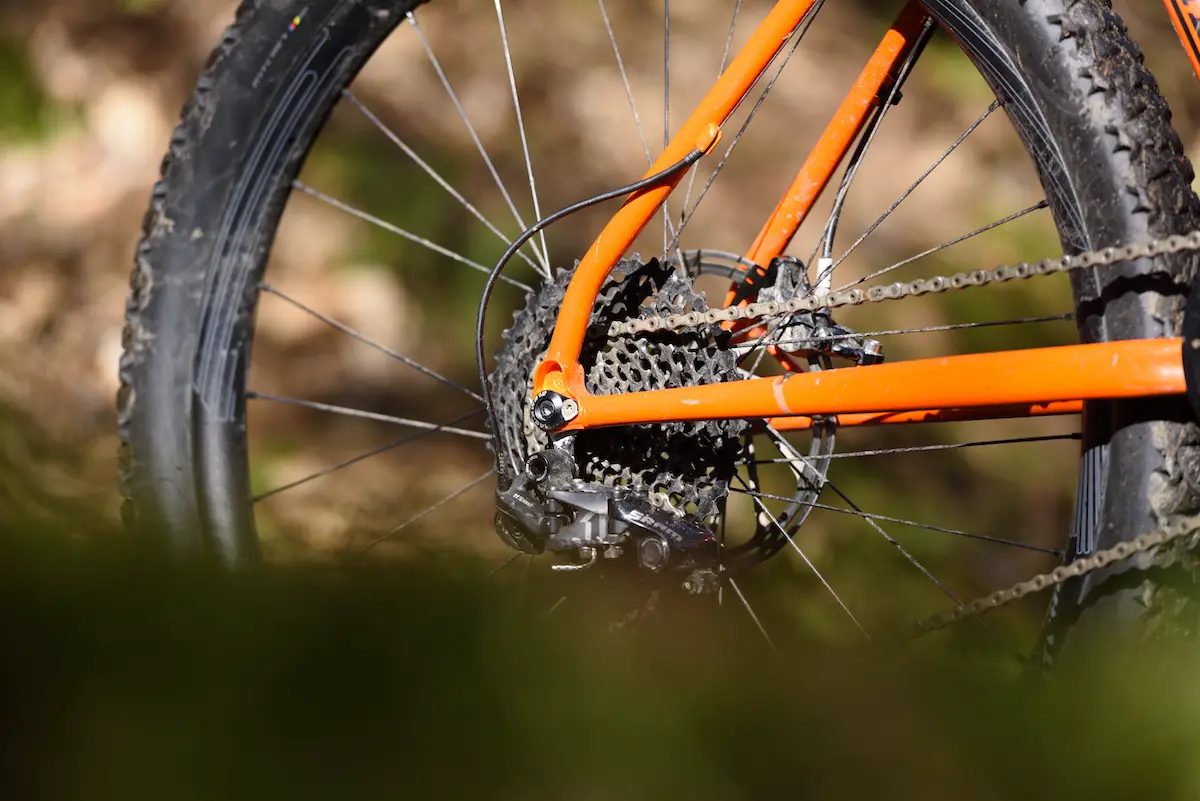
Nice slim stays converge at modular dropouts – this one came with 12mm thru-axle ones, but they can be swapped with QR dropouts if you need those instead. The paint has been applied nice and thick so should look good for a long time. I know it’s thick because I could see several layers where cable rub has worn on the corners of that flared head tube.
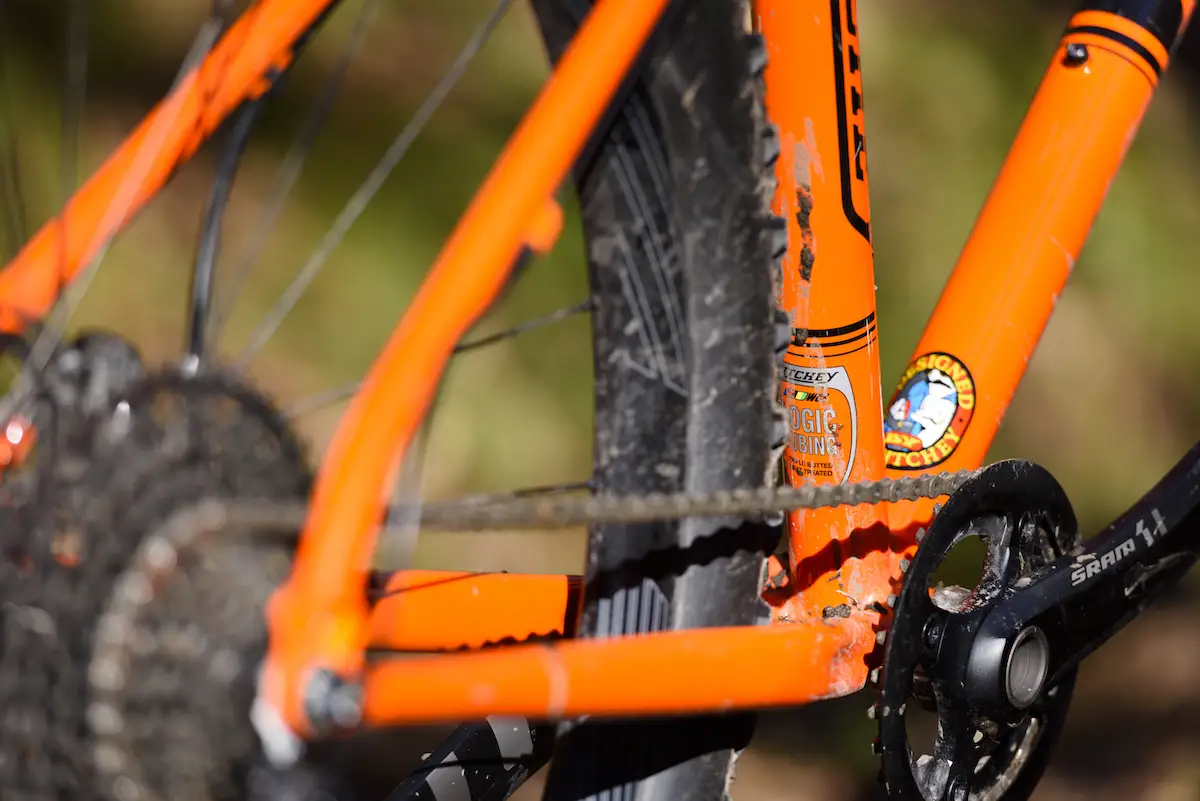
There’s all the gubbins for a stealthily routed dropper post (although our test bike didn’t have one, nor did it have a QR seat clamp) and all the cable stops you will need should you live somewhere in the past and want to run a front mech.
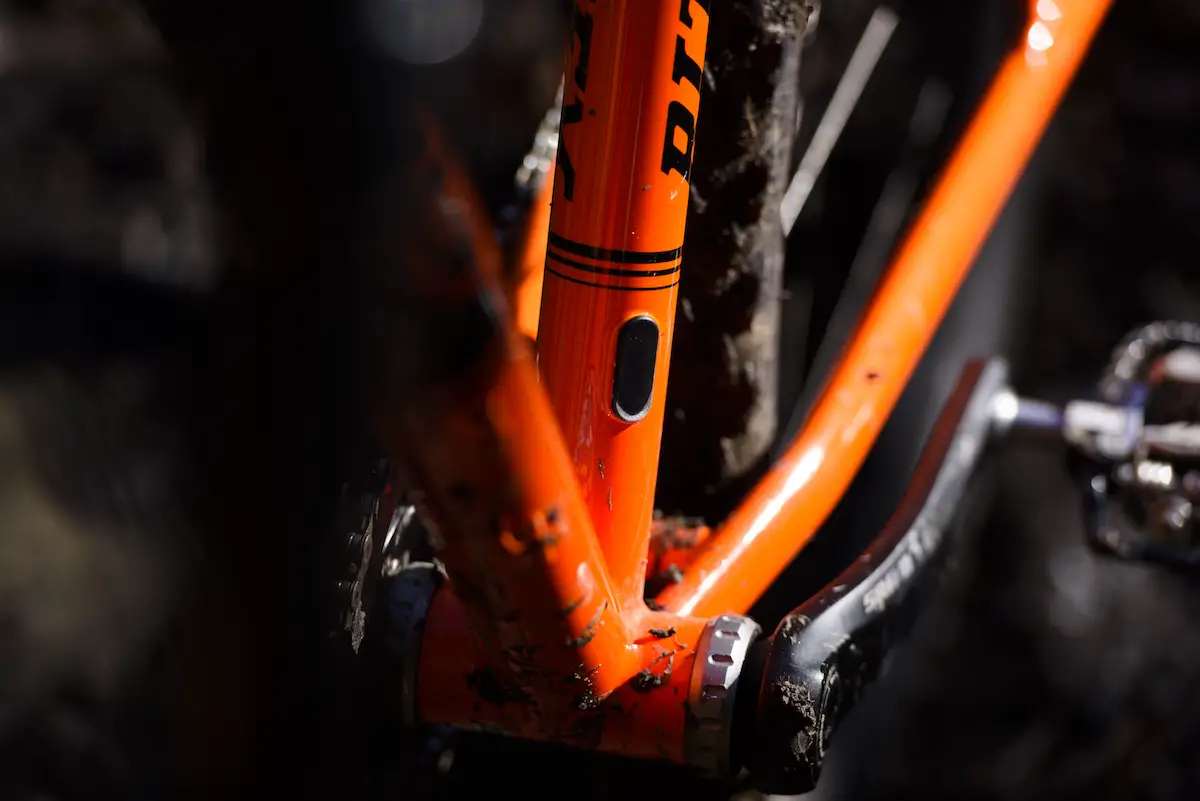
Our test bike arrived with a RockShox Revelation fork with 150mm travel, SRAM Guide brakes and 1×11 gears, and pretty much everything else was a Ritchey WCS component. The carbon bars, stem, saddle and non-dropper seatpost were Ritchey and so was the brilliant WCS Trail wheelset. Worth noting that the bar and stem were of the new(ish) 35mm standard, so some problems with mounting light and/or computer brackets may be experienced.
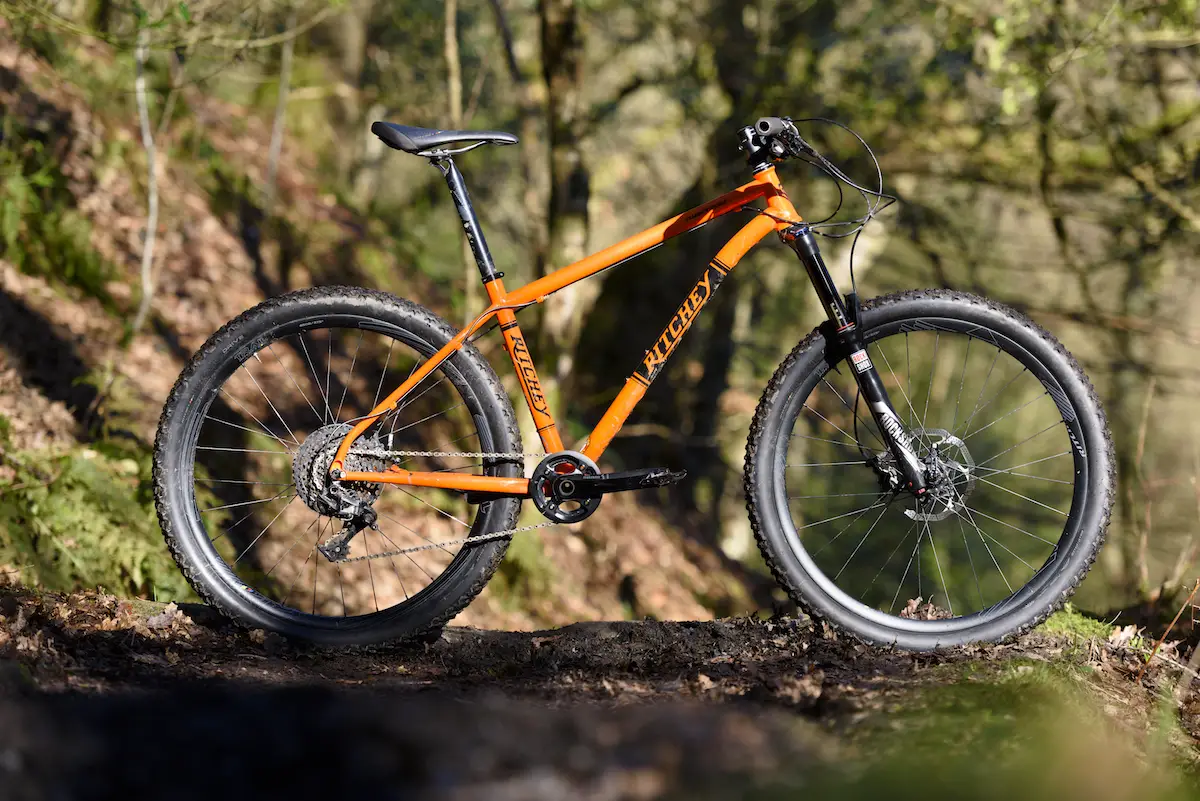
The bike was also built with a pair of Ritchey’s own tyres – a Trail Bite up front and a Trail Drive at the rear. While they were both nice and wide and appear to have the right amount of ‘aggro’ for a bike like this, the front didn’t cope very well with North of England winter mud and the rear seemed quite a bit too draggy. They’re not bad tyres, but you’d probably find a pair of faster and more controllable tyres better suited to the riding conditions in the UK.
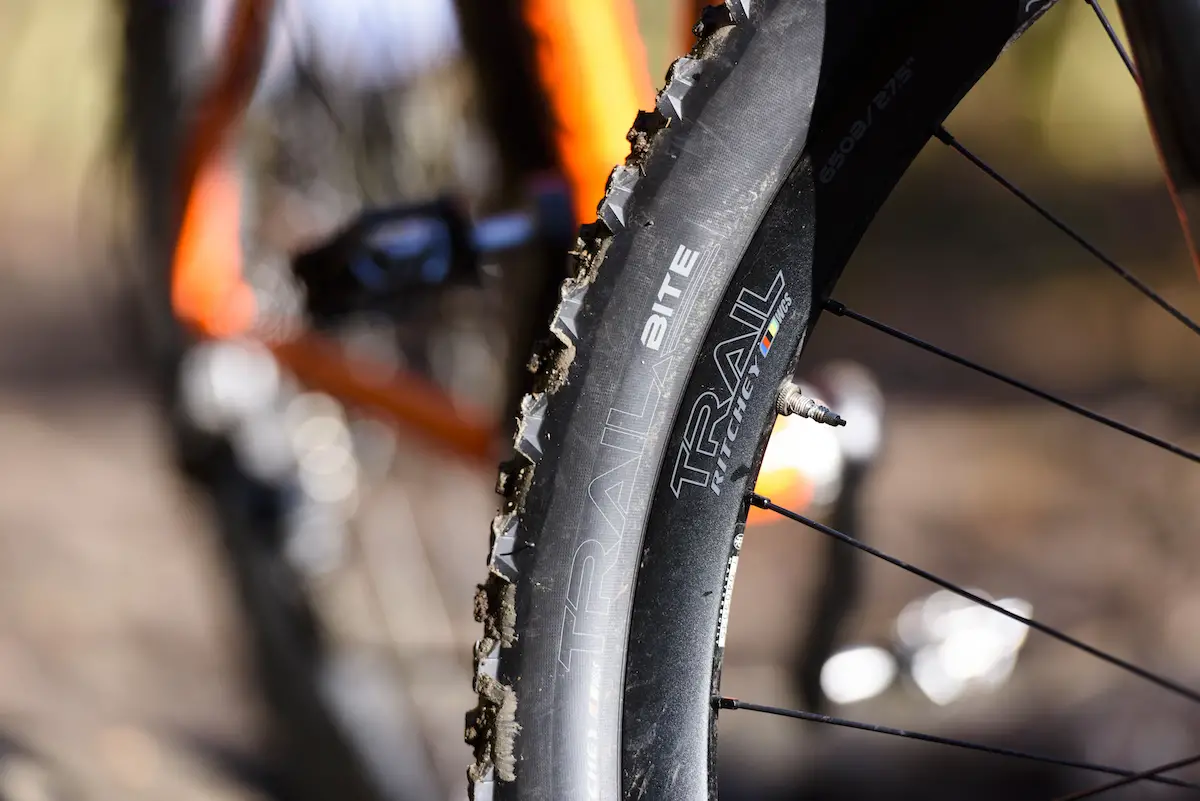
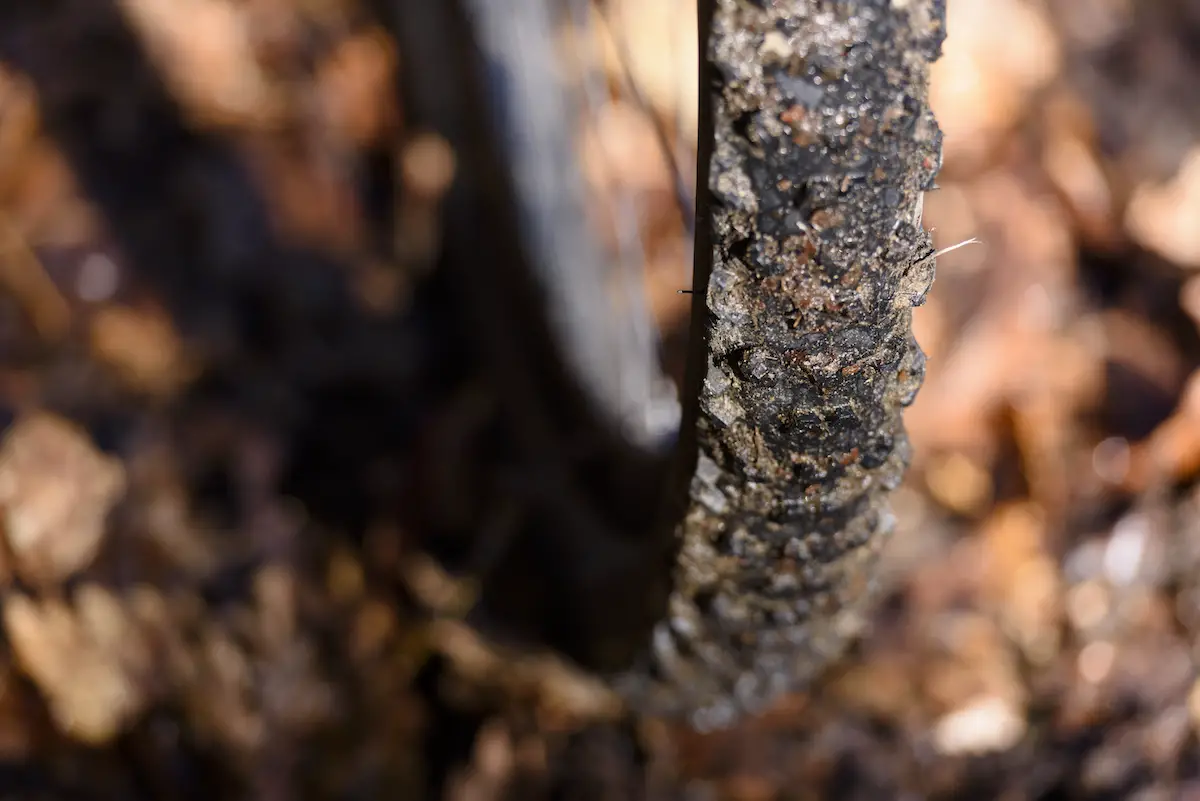
The ride is as confidence-inspiring (as long as it isn’t too muddy for the front tyre) as you’d expect for a low-slung, slack bike with a short stem, wide bars and a great big fork. It’s easy to pop the front wheel up and over rocks and roots and in spite of the big fork and short stem there weren’t any problems climbing steep slopes. It’s also surprisingly light – this build weighed in at under 26lbs.
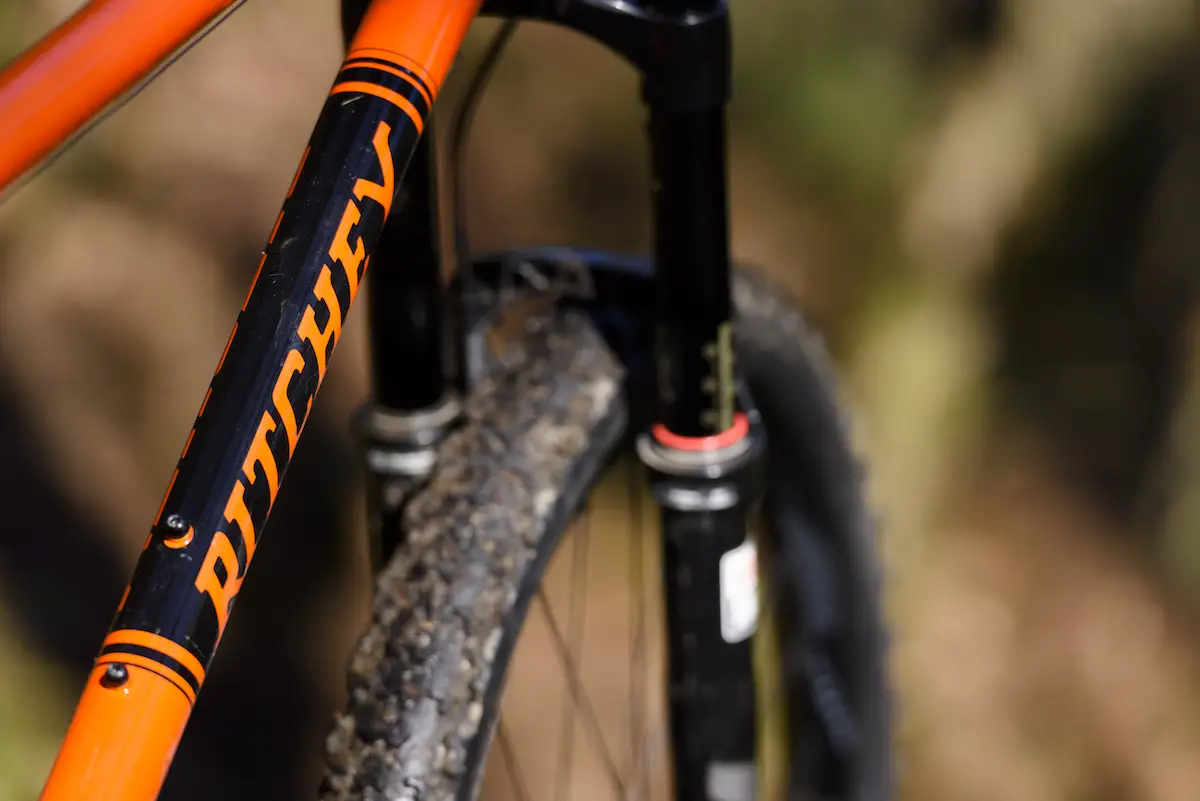
Compared to the other bikes in our Hardcore Hardtails test, the Timberwolf just didn’t seem as much fun as the other two, nor as much fun as the more cross-country-oriented, short-travel-forked 650b hardtail we reviewed in a past issue. The draggy/slippy tyre combo, the lack of a fork lockout (the lockout on our test bike was broken), the slightly too-spinny 30T chainring [speak for yourself – Ed] and the lack of a dropper post probably weren’t helping matters for what should be a great bike, so the first step was to swap the spirit-sapping rear tyre for something a bit faster-rolling.
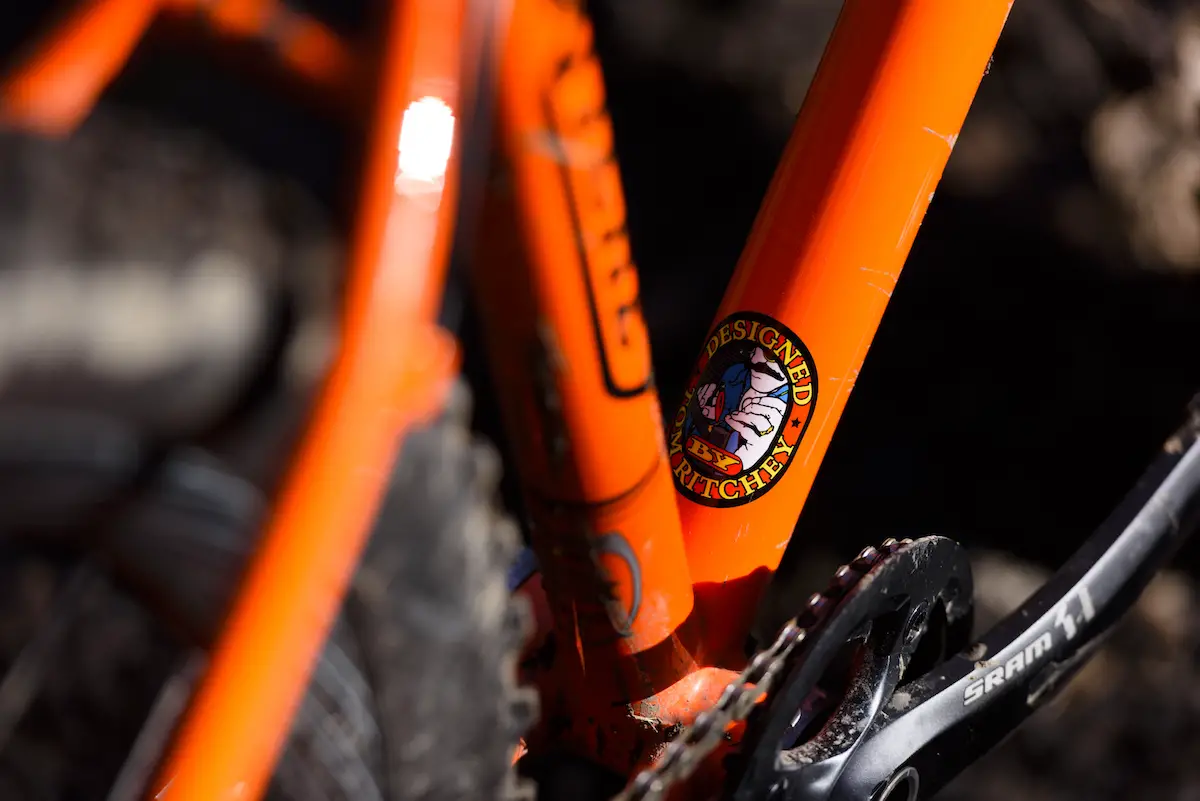
This made an immediate positive difference – it was easier to carry momentum and the whole bike was just faster and… well, better.
The frame certainly gave a smooth, pingy ride – nice and direct without being uncomfortable – as you’d expect from high-quality steel tubes, and nobody can deny that it’s a very, very cool-looking bike indeed.
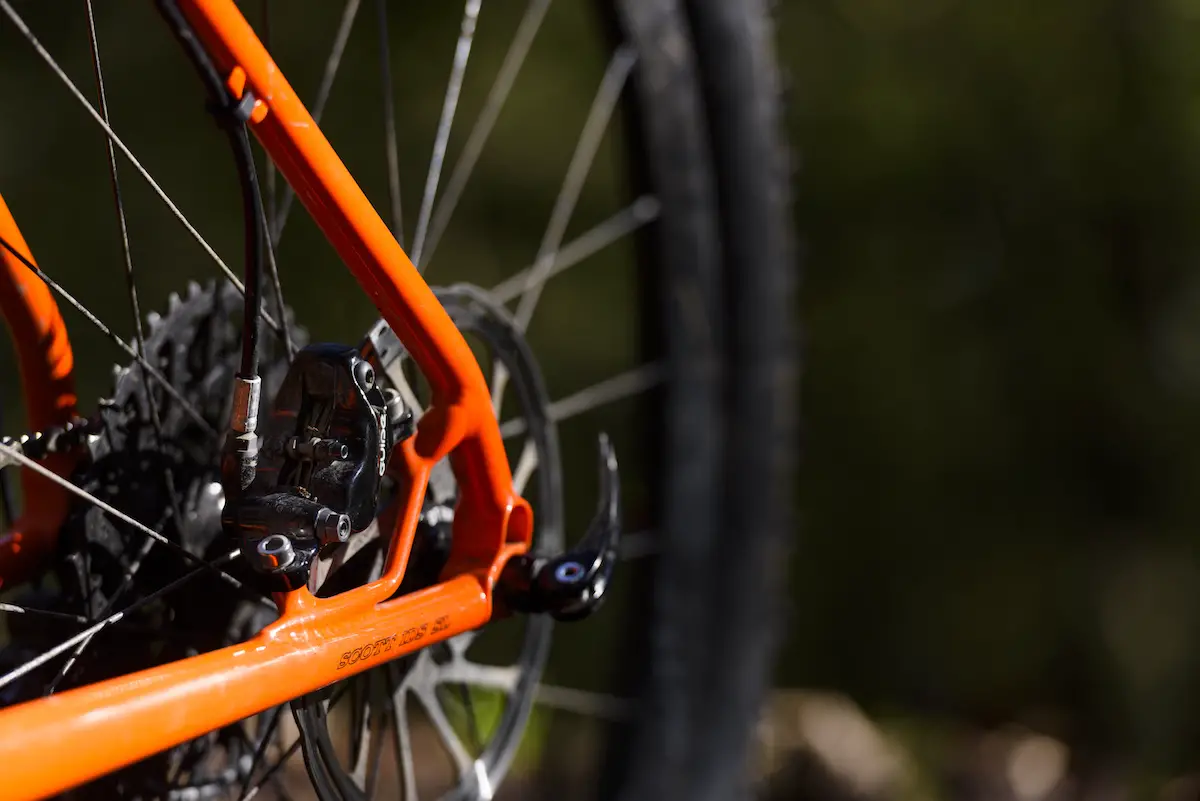
The moody promotional video that appeared when the Timberwolf was launched didn’t really show the bike at all – in fact it seemed to be aiming the bike at the ‘adventure’ market rather than lairy riding over roots and rocks. So I took it bikepacking in Wales and while it coped ok, I reckon it’s better suited to lairy riding over roots and rocks rather than being loaded up with loads of bags of bivvy bags and pork pies.
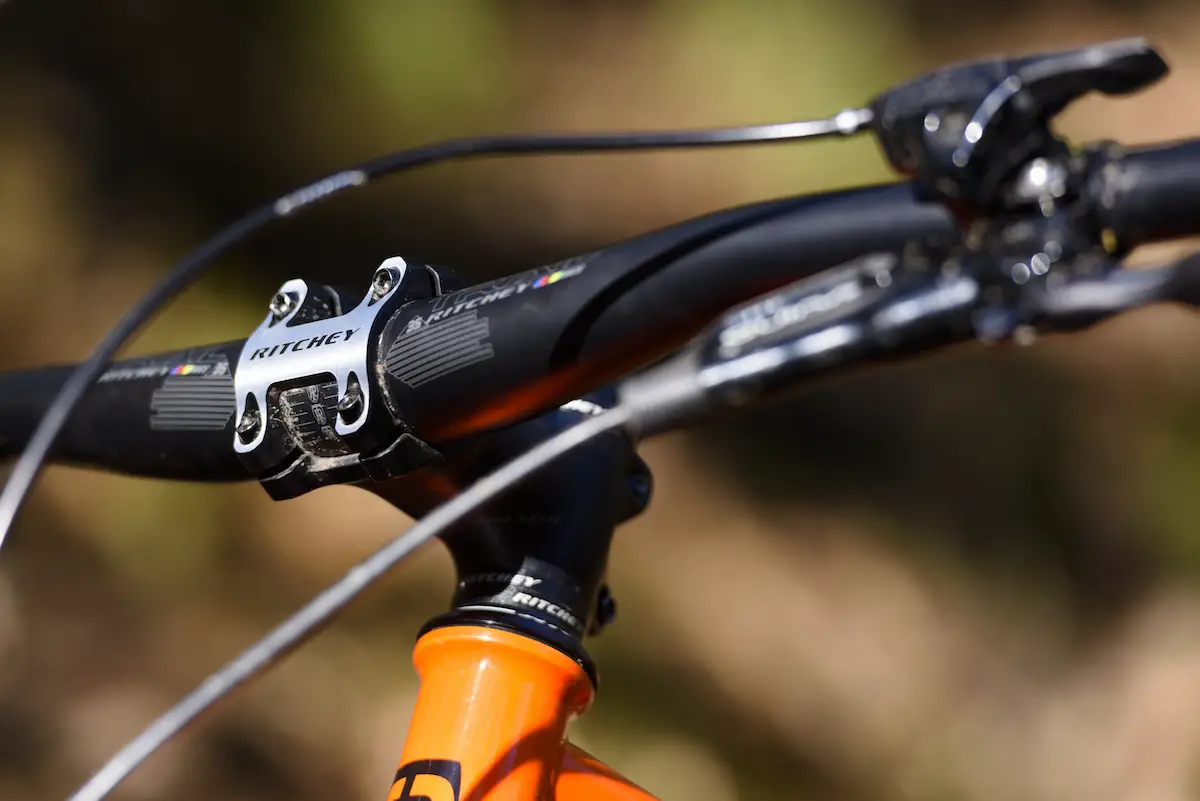
Overall
If you’ve got a frame as nice as this that’s designed around a long-travel fork, you’ve got to sweat the details when you’re building it up. Our test bike was built with a great collection of components and showcased some of the finest shiny things Ritchey has to offer.
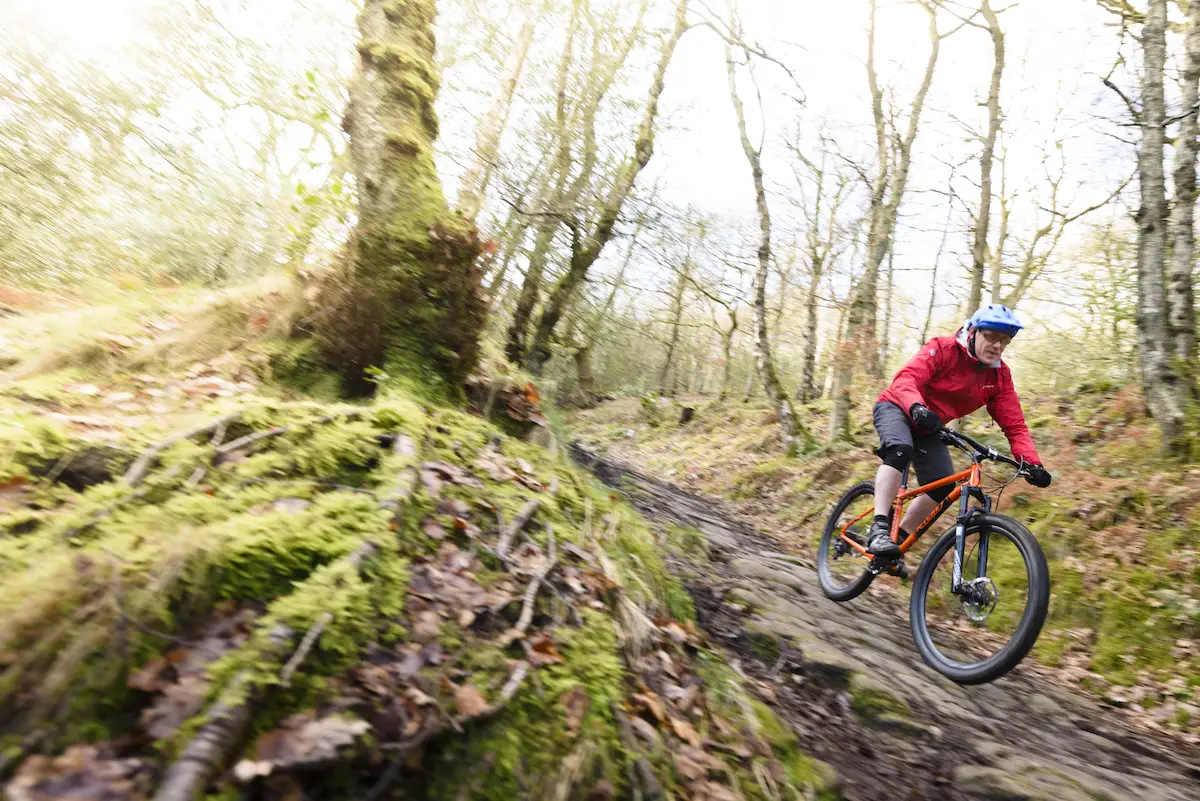
Unfortunately not all of those component choices were quite right for this bike and the attention to detail that has been shown with the Onza hasn’t been shown quite as well here. The fairly minor change of a rear tyre in my opinion made the Timberwolf more enjoyable to ride and it was crying out for a dropper seatpost – at the very least you’ll need a quick-release clamp so you can ride down the sort of stuff you can get away with on a bike like this. There’s no denying though that it’s a superbly made, gorgeous-looking frame that will look good for a long, long time.
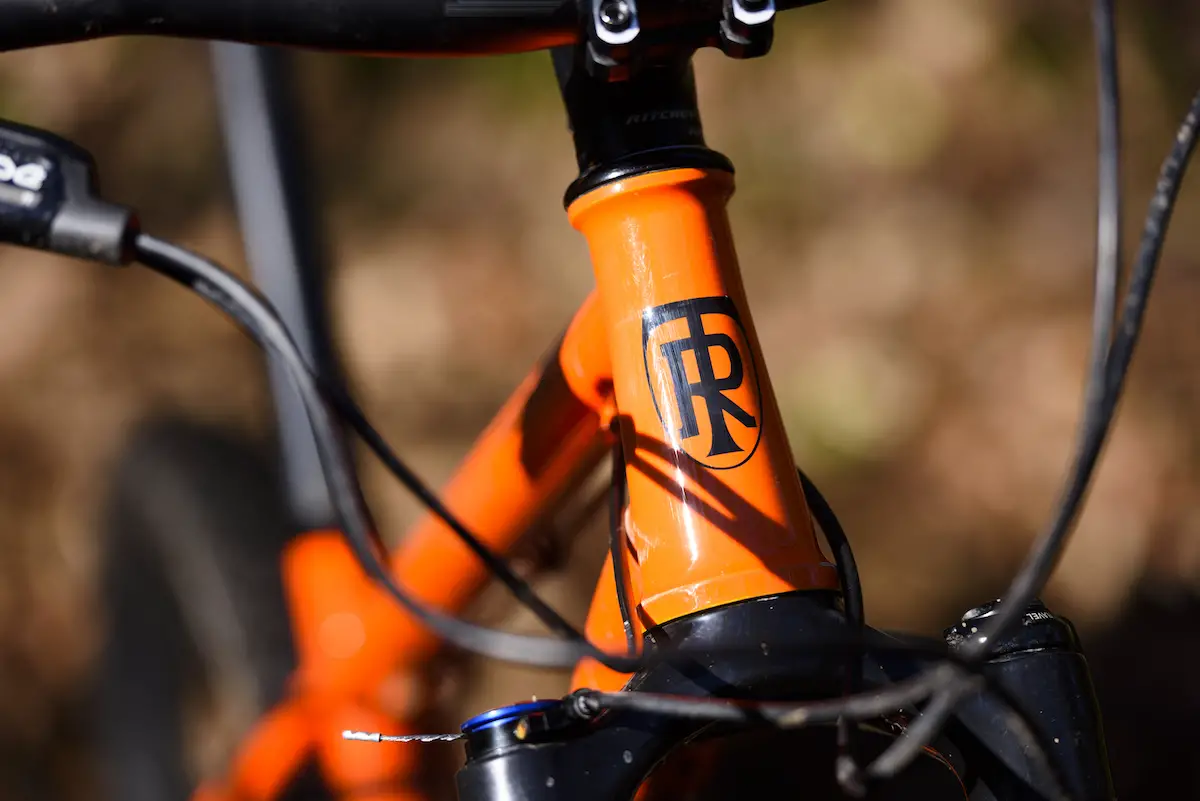
- Frame // Ritchey Logic custom steel
- Fork // Rock Shox Revelation solo air 150mm
- Hubs // Ritchey WCS Trail
- Rims // Ritchey WCS Trail, 25mm width
- Tyres // Ritchey WCS Trail Bite F / WCS Trail Drive R
- Chainset // SRAM GXP, 30T ring
- Rear Mech // SRAM X1 type 2
- Shifters // SRAM
- Brakes // SRAM Guide
- Stem // Ritchey WCS Trail 60mm
- Bars // Ritchey WCS Trail Carbon 780mm
- Grips // Ritchey WCS
- Seatpost // Ritchey WCS Trail
- Saddle // Ritchey WCS
- Size Tested // 17in
- Sizes available // 15in, 17in, 19in
- Weight // 25.9lb





